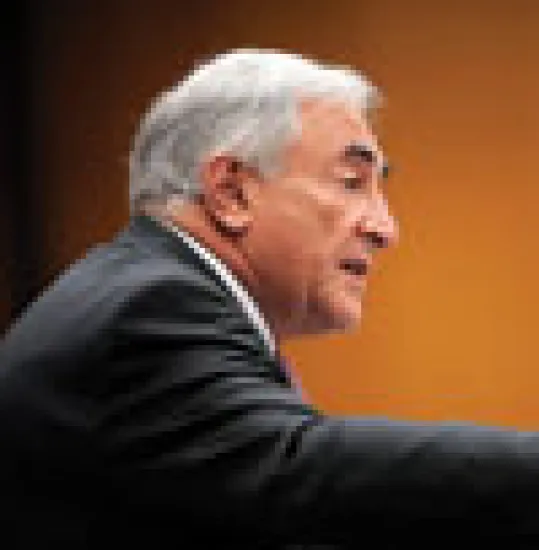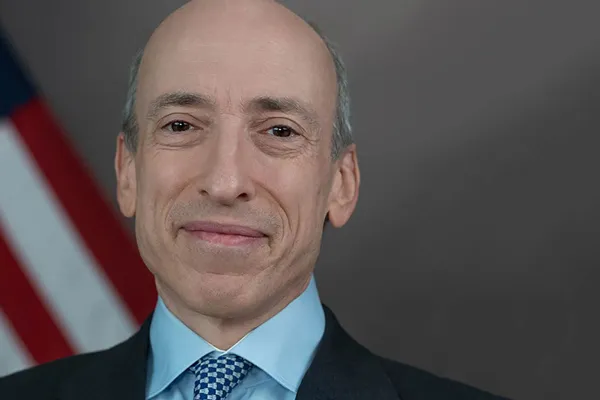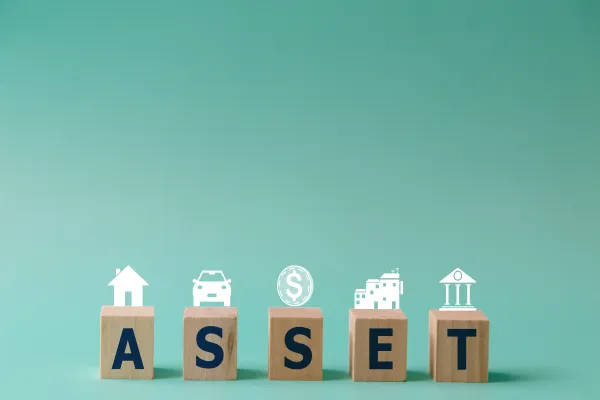If anyone has a good word to say about the global credit crisis, it has to be Dominique Strauss-Kahn. The International Monetary Fund has gotten a new lease on life from the turmoil gripping the world economy, and Strauss-Kahn has aggressively taken advantage of the renewed relevance. Since taking the reins of the institution in November 2007, the former French Finance minister has dispensed with the Fund’s traditional economic-austerity prescriptions and urged member governments to actively combat the economic downturn: He wants global economic stimulus efforts amounting to some 2 percent of world output. He has led the IMF back into the lending business with multibillion-dollar bailouts for countries including Hungary, Iceland, Pakistan and Ukraine. He spoke recently with Institutional Investor’s International Editor Tom Buerkle in Washington.
1 Institutional Investor: As a European, what do you think the election of President Barack Obama will do for transatlantic relations?
Strauss-Kahn: He is exactly the U.S. as the European wants to see it. He has a lot of charisma, he’s very straightforward, so he won’t have any problems with the Europeans.
Ten years ago, when you had Bill Clinton at the table, he took the oxygen in the room. In the European Council it was [François] Mitterrand or [Helmut] Kohl. When those guys were in the room, you felt something. I think that Obama will fill the room. We’ll see.
2 What is your sense of the state of the global economy?
The economic situation is deteriorating since the end of October. I’m rather confident that we still may experience some recovery at the beginning of 2010, provided — that’s a big if — that the policies that have been announced are really implemented.
What I’ve been afraid of is that the banking sector policies and the economic policies are taking a bit too long. In the U.S. they’re just beginning to talk about good bank/bad bank proposals. When you look at stimulus, in Europe they’re still behind the curve. The problem with the European Union is always the same: We have a single currency, but we don’t have a single economic policy. The EU is built for shallow water and normal times, and the process doesn’t work that well when you have a storm.
3 Are you advocating the establishment of a “bad bank”?
You have to deal with toxic assets and all those kinds of things, and at the end of the day, if you don’t put a lot of money into recapitalization, there will be another crisis.
I think a good bank/bad bank solution is better than refinancing the assets on the balance sheet of a bank. But if some prefer the second solution, why not? The problem today is that governments are not moving. We shouldn’t lose time discussing the virtues of the different solutions.
4 Can the market handle an extra trillion dollars’ worth of U.S. debt?
One of the surprises is that there is no crisis of confidence in the dollar.
The cost will be rather high in the long term, because of the increase in the national debt. But compared with the cost of doing nothing or doing less, I’d say that the cost is low. The bottom line is that because of the mistake that has been made in the financial sector, there is a bad cost. There is no way to avoid the bad cost.
5 Are we going to end up with a nationalized banking system in the major countries?
One of the ironies is that it was the previous U.S. administration that nationalized part of the banks, and in Europe some very conservative governments did the same. The biggest question is the exit strategy. The countries have to manage the way they will put all those assets back on the market. How to do it? Go back to the question of the savings rate, and especially the savings rate in the U.S. There is no way to solve global imbalances without having this question at least addressed, if not solved.






